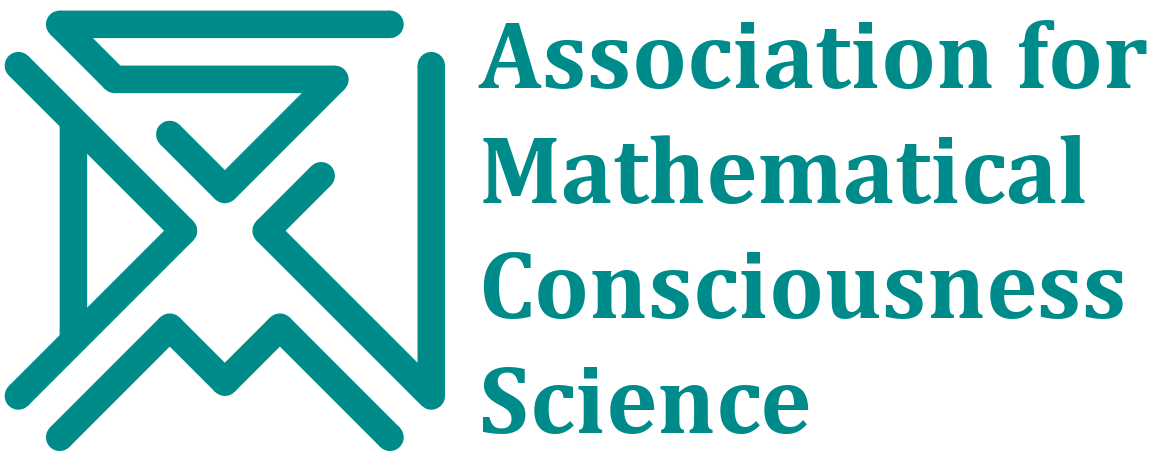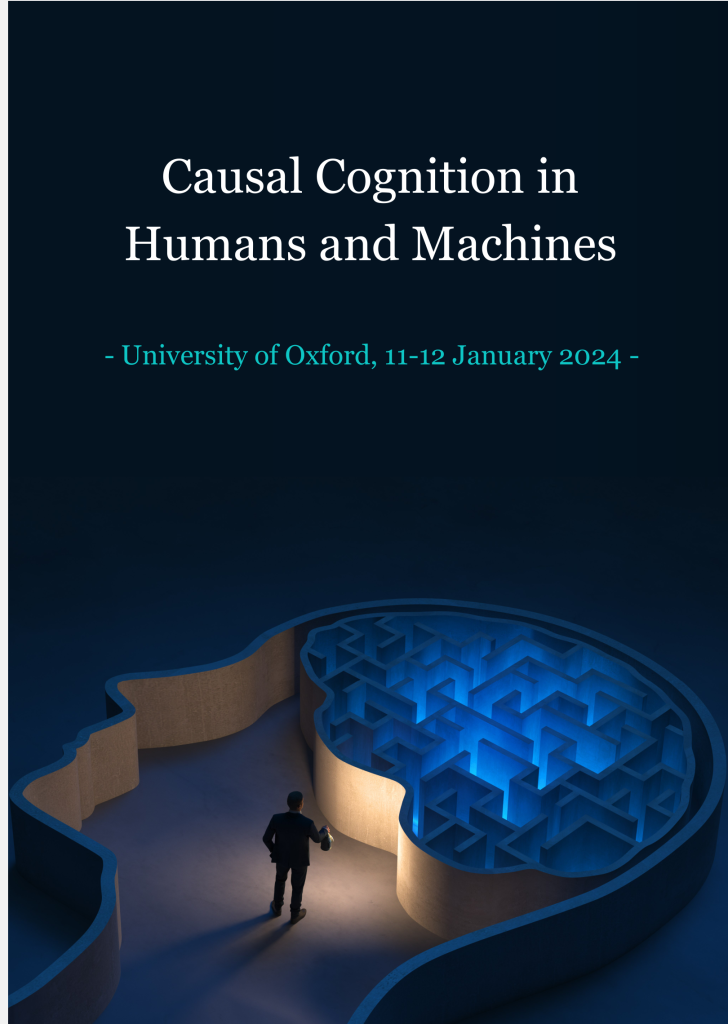— Intelligence and Intelligent Systems —
University of Oxford, 11-12 January 2024

Over recent years, a significant convergence has emerged among research in psychology, computer science, and artificial intelligence (AI), focused on developing machines capable of emulating many aspects of human cognition and reasoning abilities. Central to these advances is the investigation of causal thinking, an essential facet of human intelligence, drawing inspiration from both human-perceived causality and causality in the physical realm.
A thorough understanding of causality is argued to be indispensable for making informed decisions and assuming responsibilities, in both artificial and real-world contexts. Applications include the fostering of reasoning and learning, identifying cause-effect relationships, enhancing problem-solving skills, augmenting predictive power, and improving the accuracy of causal inferences. Such competencies are no longer exclusive to humans, as artificial intelligent systems increasingly permeate our daily lives.
At the same time, the apparent successes and limitations of recent large language models in AI have raised vital questions as to the necessity and role of causal reasoning in artificial systems.
Following the first workshop in 2019, the second Interdisciplinary Conference on Causal Cognition in Humans and Machines aims to assemble researchers, engineers, and students from various disciplines to engage in comprehensive discussions on causal intelligence.
The conference will be highly interactive, with dedicated time for discussion sessions, aiming to stimulate an interdisciplinary exploration of causality across psychology, computer science, and AI.
Key goals of the conference
- Exploring the connections between intelligence and causal thinking in both humans and machines
- Establishing an interdisciplinary platform for researchers in causal intelligence from cognitive science, computer science, and AI
- Examining the necessity of causal reasoning for AI in light of current developments (e.g. large language models) and in comparison to human cognition
- Developing new methodologies for analysing causal cognition and intelligent systems
Keynote speakers
We are excited to introduce distinguished keynote speakers, who share a common focus on pioneering research methodologies and innovative approaches in the realm of causal cognition and intelligence. Their work represents a departure from traditional paradigms, and explores the real-world applications of their findings within today’s societies and AI-driven environments.
- Steven Sloman
- Samantha Kleinberg
- Ruth Byrne
- Michael Thomas
- Francesca Raimondi
- Bob Coecke
- Yoshua Bengio
Conference Booklet
Download the CCHM conference booklet, containing talks, abstracts and the conference schedule.
Insights from the Conference
We greatly appreciate everyone’s time and interest and look forward to further developments in the field! In case of interest, please find a synopsis of some of the key insights of the conference for download here.
Local Information for Participants
We are delighted to welcome you to the upcoming CCHM conference. This section contains all you need to know to join the conference.
Access to the Building and Registration
The conference takes place in Lecture Theatre B of the Wolfson Building of the Department of Computer Science.
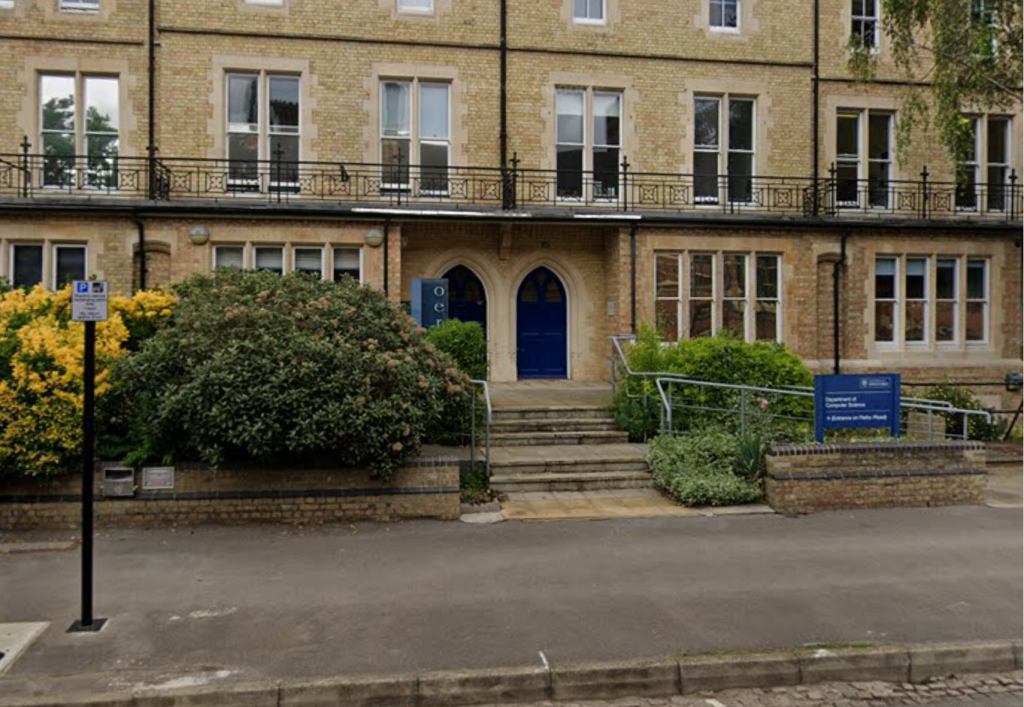
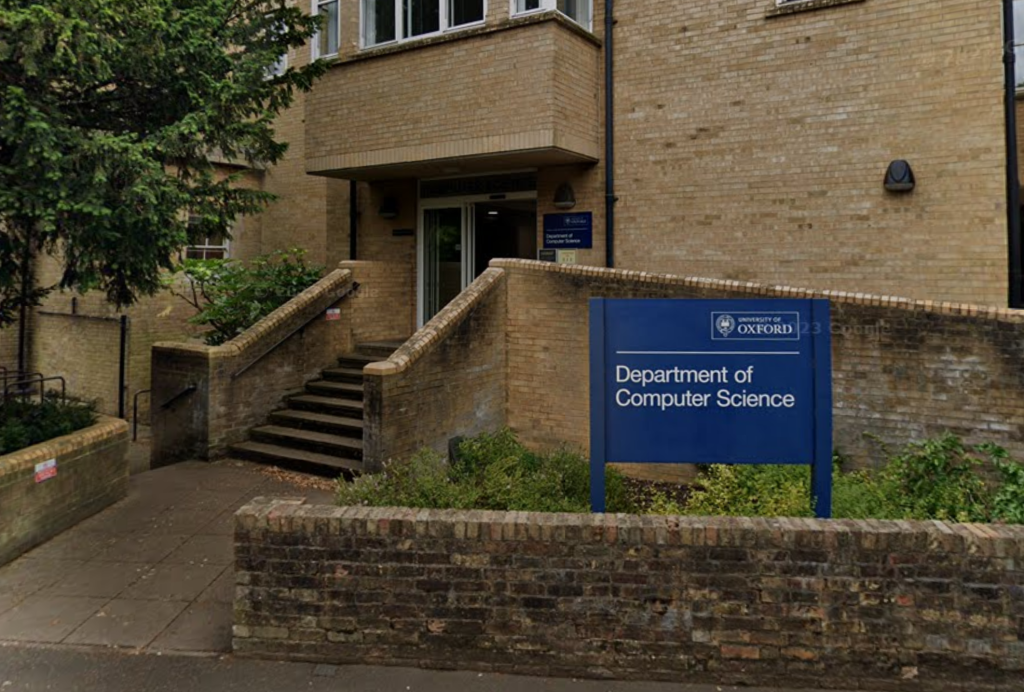
The entrance to the conference venue is through 7 Keble Road. Please ensure timely registration, as the door will be open at 8.30am and close at 9:15 am on both days for security reasons. If you are late or need to go outside, you will need to use the main entrance reception through Parks Road to come back. Your cooperation in this matter is greatly appreciated. For more information, please visit:
Guest WiFi
You will be provided with a guest WiFi access, details of which can be found in the conference handbook available during registration.
Recording and Public Access
Presentations and panel discussions will be recorded for archival purposes and made public later, if the speakers agree.
Catering and Venue Rules
The conference will follow a well-structured program, with lunch and tea/coffee breaks provided on both days. We kindly request participants to use allocated bins, dispose of glasses, plates, or cutlery after using them. Please do not bring any food or drink into Lecture Theatre B (LTB) except for water.
Call for research presentations
Research presentations during the conference provide a platform for experts from various fields to share their findings, methodologies, and insights related to causal cognition. Research presentations are limited to 20 minutes and intended to encourage diversity of thought and collaboration among attendees.
Please note that applications for research presentations are now closed.
Registration and application
This conference is entirely free of charge for all participants. However, we kindly request that all registrants consider that their registration reserves a spot that might otherwise be available to another attendee on the waiting list. We kindly ask you to commit to both days of the conference once you register. If, for any unforeseen reason, you are unable to participate on both days, please notify us asap.
While applications for research presentations are now closed, places are still available to attend the conference. If you wish to attend the conference, please include in your registration:
— Full name, occupation and institution
— Main area of work and further areas of interest
Please direct your registration to cchmconference@gmail.com. Your registration will be confirmed by email.
Scientific committee
Andreas Demetriou (Aristotle University of Thessaloniki)
York Hagmayer (Göttingen University)
Steven Sloman (Brown University)
David Lagnado (University College London)
Jules Hedges (Strathclyde University)
Bob Coecke (Quantinuum)
Robin Lorenz (Quantinuum)
John Barrett (University of Oxford)
Sieglinde Pfaendler (IBM)
Martha Lewis (Bristol University)
Organisers
Selma Dündar–Coecke (Centre for Educational Neuroscience & Quantum Brain Art)
Johannes Kleiner (University of Munich & University of Bamberg)
Aleks Kissinger (University of Oxford)
Sean Tull (Quantinuum)
Social activities
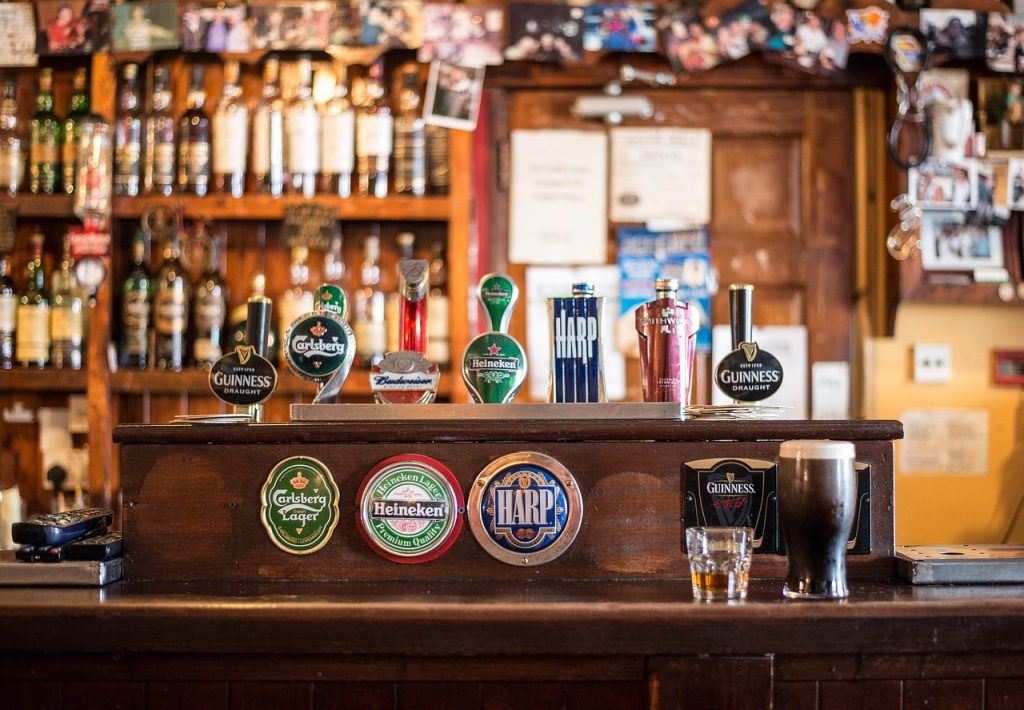
Meet & Greet at the Lamb & Flag
Join us for a relaxed and informal ‘meet and greet’ event at the historic Lamb & Flag pub on Wednesday evening between 5pm and 9pm. Please note that this is a self-paid gathering. We look forward to seeing you there!
Address: 12 St Giles’, Oxford OX1 3JS → Google Maps

Conference Dinner
We will be delighted to welcome all attendees to the conference dinner on January 11, 2024 at 7pm at the Cherwell Boathouse. Good food, great company, and unforgettable memories await. This event is sponsored and includes a buffet and two glasses of wine or an equivalent drink per person. To secure your place, please RSVP by November 20, 2023, so we can reserve your seat.
Address: Cherwell Boathouse, Bardwell Rd, Oxford OX2 6ST → Google Maps

Cognitive Jam Session
Join us for a Music event on Friday at the upstairs venue of Jericho Tavern, featuring DJ Rave’s Jam Session from 6pm to 11pm. Feel free to bring your own instruments. We welcome musicians of all levels to participate and make this music event a memorable experience!
Address: 56 Walton Street, Oxford, OX2 6AE → Google Maps
Date and venue
Date: January 11-12, 2024
Venue: Department of Computer Science, University of Oxford
The venue is located in the Wolfson Building, Parks Road, Oxford, OX1 3QD, UK. The entrance is through 7 Keeble Road, OERC, Oxford, OX1 3QD, UK. For directions, please see the department’s website.
Further details about the event location, as well as the programme, will be made available to those who register.
In case of questions, please don’t hesitate to email us at cchmconference@gmail.com.

